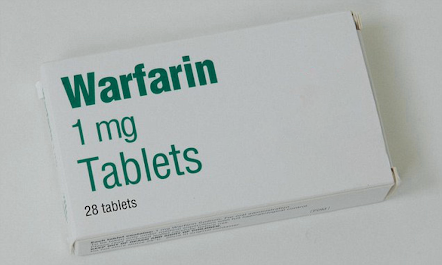Best Medicines to Treat Deep Vein Thrombosis (DVT)
What drugs prevent and treat DVT?
Anticoagulant drugs are most used by DVT. Anticoagulants interfere with some of the processes of your body, which causes a blood clot to develop. The clotting cascade is called this process
DVTs (Deep Vein Thrombosis) may be used to avoid the formation of anticoagulants. They can also help to treat previously formed DVTs. They do not dissolve DVTs but help them not grow larger. This effect enables your body to naturally break down the clots. Anticoagulants help to reduce your risk of DVT. For both prevention and treatment, you will be using anticoagulants for at least three months. Many anticoagulants are used in the prevention and treatment of DVT. For a long time, some of these medicines were around. Many of these medications are however newer.
DVT is a blood clot in one or more deep veins of your body. Deep vein thrombosis is the blood clot in the legs. You may have no symptoms or leg swelling or leg pain with this disease. In general, there is a pain in the veal and it feels like a cramp.
Drugs may treat or prevent one from forming an existing deep vein thrombosis (DVT) if you are at risk. You wonder what your options are if you need DVT therapy.
Related article: 13 Foods That Boost Blood Circulation
Older blood thinners
Heparin and warfarin are two older anticoagulants for the prevention and treatment of DVT. Heparin comes with a needle as a solution. Warfarin is coming as an oral pill. Both drugs are effective in the prevention and treatment of DVT. However, your healthcare provider needs to check you often if you take any of these medicines.
New blood thinners
New drugs can also help to prevent and treat DVT. They are available as either oral and injectable pills. They are different than the older anticoagulants to a part of the clotting cascade. These newer anticoagulants are listed in the following table:
Drug Name | Brand Name | Oral or injectable pill |
Rivaroxaban | Xarelto | Oral |
Apixaban | Eliquis | Oral |
Dalteparin | Fragmin | Injectable pill |
Edoxaban | Savaysa | Oral |
Enoxaparin sodium | Lovenox | Injectable pill |
Older and newer blood thinners differ from each other
These older and newer DVT medicines differ in many ways. You do not have to take as many tests as you would with warfarin or heparin, for example, to see if your level is in the correct range with these newer anticoagulants. It is also less negative than warfarin or heparin with other drugs. The newer anticoagulants do not, as warfarin is, have any impact on your diet.
Older medicines, however, are cheaper than newer ones. Recent medicines are available as brand-name medicines only. Many insurance firms require these medications to be approved beforehand. This means that your doctor may need to contact the insurance company before you can fill the prescription. The long-term effects of warfarin and heparin of newer drugs are not known.
Prevention:
In persons who move less than normal, DVT is more likely to happen. This includes people with limited surgical movement, accidents, or injuries. There is also a risk to older people who may not move around as much. If you also have a condition that affects your bleeding clots, you might be at risk for a DVT.
What if I do not treat a DVT or have a DVT?
The clot can get bigger and break loose if you do not treat DVT. If the diagnosis breaks loose, your heart and the small blood vessels of your lung can flow in your bloodstream. This could cause an embolism of the lungs. The coagula can house and block your lungs from flowing blood. Lung embolism can lead to death. DVT is a serious condition and your doctor's advice for treatment should be followed.
Things to consider when selecting a medicine
Many medicines are available for the prevention and treatment of DVT. The medicine that is proper for you may depend on your medical history, the medicines you take, and the coverage of your insurance plan. You should talk to your doctor about all these things so that they can prescribe the best drug for you.
"This article is provided for informational purposes only and is not intended as medical advice, or as a substitute for the medical advice of a physician."



Comments
Post a Comment